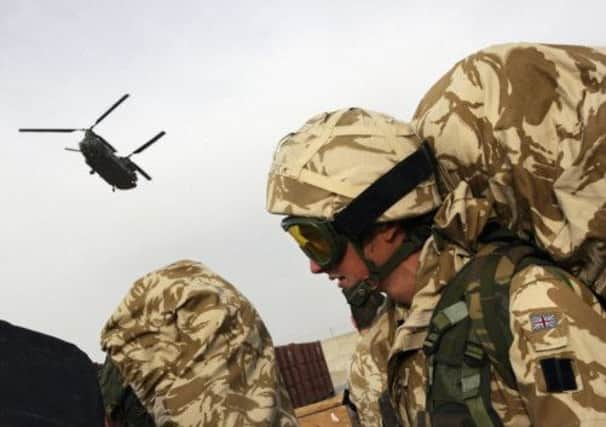Tim Ripley: Armed forces must get back to basics


In the wake of the conviction, senior officers are putting on a brave face. While Brigadier Bill Dunholm said the Royal Marines would consider any impact from the case on the training given to its soldiers, it raises far more serious questions.
From the evidence and testimony, it is clear something went seriously wrong with the Royal Marines’ chain of command in Helmand in 2011. In military jargon, where was the “adult supervision”? The accused and the other marines in the unit concerned managed to keep the horrific events secret for well over a year and were only discovered when the video was found by civilian police on a laptop after they arrested one of the marines in an unrelated event.
Advertisement
Hide AdAdvertisement
Hide AdThis “what happens on tour, stays on tour” mentality is supposed to be prevented by regular supervision by officers and sergeant majors. Yet, in this case, Marine A’s platoon commander, company sergeant major, company commander and battalion commanding officers were completely in the dark until the accused were arrested by the civilian cops.
All those involved in supervising these marines have serious questions to answer. Did they visit the troops in their remote base often enough? Did they routinely inspect their helmet-cam recordings to see if they had been tampered with or hidden? And did they make sure that they were receiving sufficient supplies or other battlefield support?
Secondly, the events leading up to this incident must call into the question the way the units of 3 Commando Brigade were deployed across Helmand in very small contingents with no armoured vehicles and little artillery support, making them almost totally dependent on air support to prevent them being overrun by Taleban attacks. This situation clearly played a part in fostering a siege mentality among the beleaguered small marine unit involved in this incident. From the helmet-cam tape and other testimony, the marines clearly felt they were in a desperate situation and could expect to be overrun, captured or killed at any moment.
In the wake of this incident, there is little room for complacency by the senior leadership of the Royal Marines, the wider armed forces and the Ministry of Defence. It is apparent that, beyond the specifics of the incident, where one individual cracked, senior officers need to look again at how they command and control their troops during combat operations. “Leading from the front”, with officers sharing the hardships of their troops in the front, used to be second nature to Royal Marine and British Army officers. The 21st-century preoccupation with directing drone strikes, monitoring computer screens in remote headquarters or the need to act a political negotiators with local civilians has created a tendency to pull officers away from contact with their troops. It is time to get back to basics.
• Tim Ripley is a defence analyst and commentator.